Conrad Johnson's Blog, page 30
July 7, 2015
Suzy Ayers and Fantasy Encounter with a Dom (a review)
 Fantasy Encounter with a Dom by Suzy Ayers
Fantasy Encounter with a Dom by Suzy AyersMy rating: 4 of 5 stars
It's hard to hear a powerfully genuine voice when riding the thunderous curl of the romance/erotica tsunami these days, but Fantasy Encounter with a Dom offers just that. Imagine that Emily Dickinson lived as an odalisque instead of a reclusive poet and you have the author persona that Suzy Ayers aspires to in this novel of tawdry true kink. After all, nothing screams forbidden sex like Puritan roots and Christian dichotomous living with lust. But don't read too much into the storyline because it's fleshy pleasure that we all want and need and beg for if you're lucky enough to be a character created by this New England author. It's intriguing to look back at the earlier work of an emerging talent as she moves forward publishing with a dark erotic thriller piece titled, Saving Lady J: The Butterfly Series with Dark Hollows Press. Don't get lost in the tide, let Suzy Ayers guide. Let her writing touch you in the right places.
View all my reviews
Published on July 07, 2015 12:28
July 4, 2015
Jacqueline Kim and Advantageous (a film review)
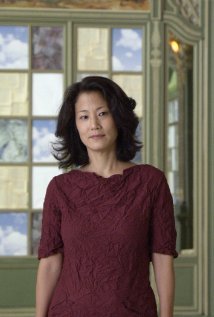
Jacqueline Kim
Advantageous, a sci-fi drama directed by Jennifer Phang and starring Jacqueline Kim, premiered at the Sundance film festival in January, 2015 and just released exclusively through Netflix.
The plot follows Kim, who plays Gwen, a single mother of a child prodigy daughter named Jules (maturely portrayed by Samantha Kim), through a tangled web of fiber optic emotion that visually highlights Phang's futuristic setting in a society where women are cast aside easily once the bloom of youth fades. In spite of all the technological advances this Brave New World holds, only a self sacrificing love that sustains yet pains Gwen can drive her to offer herself as a trial subject for risky 'consciousness transfer' into a younger woman's body so she can keep her advantageous marketing job.
James Urbaniak also delivers as Fisher, an executive who befriends her after she is fired for being too old. Ironically, the company will rehire her if she undergoes the complex and uncertain procedure so that Jules can continue going to the best schools in a society where women must become less than human in order to survive economically.
What's most captivating about the film is Phang's precise use of time tested surrealistic camera shots that convey a lack of connectivity between inner emotions and outer realities that are painful but necessary-nervous hand shots, semi-intrusive merge scenes that show how daily life is pushed to the limits by invasive technology--and more.
There's a certain Blade Runner surreality to many of the scenes that allude to a world that is near yet far to human sensibilities, a disconnect if you will. But the real connectivity issue that imbues the entire screen from start to finish is a mother's unselfish and tortured love for her daughter and this is why Advantageous trumps the difficult hand of a science fiction movie wanting to toss- in- its- cards and surrender to special effects and storyline. Not many films in the genre are able to do this, sacrificing character emotional development for idea. Phang and Kim reach for the stars and show us what extremes a mother will go through for her child's sake, even if it means an excruciating out of body experience.
There is no reality outside of pain because pain seeks and creates its own reality--Roberto Bolaño
Samantha Kim
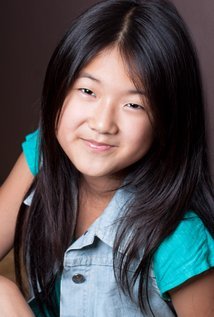
Published on July 04, 2015 17:13
Gertrude Stein and Picasso On Stage in Seattle
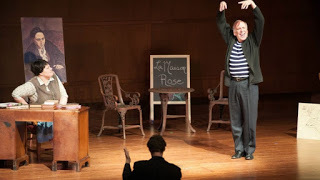
Emily K. Alhadeff from the Times of Israel symphonically comments.
http://www.timesofisrael.com/how-could-gertrude-stein-and-picasso-have-been-friends/
Published on July 04, 2015 14:31
July 2, 2015
Linda Collison and Water Ghosts
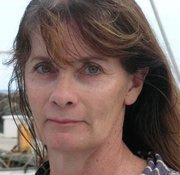
Linda Collison interviews with Writers Alive about her latest YA paranormal sea adventure, Water Ghosts. Enjoy:
How did you become involved with the subject or theme of your book?Water Ghosts began, not with a plot or a character, but with a setting – an old junk moored at the Ala Wai Small Boat Harbor in Honolulu. The first time I saw her was after Bob and I had tied our sloop up, Tahitian style, on Ala Wai’s 800 Row not long after sailing over 2500 nautical miles on the return trip from Bora Bora. Walking through the harbor to the pub to get a beer we passed her, a few rows away: Intrepid Dragon II. (Which immediately begs the question, what happened to Intrepid Dragon I?) The peeling foredeck was crowded with crates, red plastic fuel cans and fifty gallon drums – and covered by a tattered plastic tarp. She looked like a floating storage shed in need of some work. Sometime later I called the number on the flier posted on the piling, expressing my interest in the vessel. The caretaker invited us aboard for a tour and shared the vessel’s history and mission as the flagship of the China Seas Voyaging Society, which leases her for their purpose of educating Americans about Chinese maritime history. The motor-sailing vessel was built of Yucal teak in Hong Kong by the Woo-Ying shipyard, in 1969 (She looked much older.) According to her log books, Intrepid Dragon II is a likely contender for holding the world’s record for the most (recorded) circumnavigated miles for a Chinese junk-rigged motor-sailing vessel. As soon as I stepped on deck my imagination fired up. That’s where it began, my interest in Chinese maritime history and the Chinese pantheon, including shui gui, which are water ghosts. Belowdecks the ghosts found me, insinuated themselves into my imagination and begged their story be told. But they only told me part of it, I had to find the details in the history books. I had to research Ming Dynasty, court eunuchs, Mazu, a sea goddess, shui gui, etc. The junk Intrepid Dragon II inspired the story, but the junk Good Fortune in my novel has no engine at all. It’s an older design. Far older. Water Ghosts took a decade to come to fruition. But a decade is nothing in deep waters of history and ten years means nothing to those who lie in wait.
How long have you been writing? All my life. Well, since I learned to write, in second grade. Mrs. Riddle. We wrote our stories in black composition books. I was hooked.
How does your book relate to your spiritual practice or other life path?
Writing is the key to immortality and rediscovering past lives. I say this with tongue in cheek, yet at the same time, I’m perfectly serious.
What were your goals and intentions in this book, and how well do you feel you achieved them? My goal was to explore other lives and connect with the past. My goal was to experience an exciting summer adventure program through the eyes of a troubled teenager who dreads being part of it. To experience what it’s like to hear things that other people don’t hear and to see things other people don’t see.
What are some of the references that you used while researching this book? Oh, so many fascinating books . Such as,The Eunuchs of the Ming Dynasty, by Henry Tsai. And, When China Ruled the Seas; the Treasure Fleet of the Dragon Throne 1405-1433,by Louise Levathes.
What do you think most characterizes your writing?Voice.
What was the hardest part of writing this book? Letting the ghosts take over; giving up control of the story to them.
What did you enjoy most about writing this book?Same answer: Allowing the ghosts to take over the story.
Are there vocabulary words or concepts in your book that may be new to readers? Define some of those.There are Chinese words that the narrator hears and doesn’t understand. Don’t get hung upon foreign words and terminology you can’t define. Read for the deeper meaning. Don’t miss the forest for the trees.
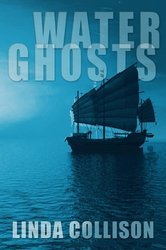 GRAB IT NOW CLICK HERE
GRAB IT NOW CLICK HEREWhat inspires you?
The improbability of life -- and the resilience of life.
How did you get to be where you are in your life today?Genetics and good fortune.
Who are some of your favorite authors that you feel were influential in your work? What impact have they had on your writing? William Golding (Lord of the Flies), Ian Banks (Wasp Factory) Mark Haddon (The Curious Incident of the Dog in the Nighttime). I love unreliable narrators. I love psychological and sociological novels. I like stories that raise questions. I like stories that emphasize character and setting and I like stories that connect me to other lives.
What are some day jobs that you have held? If any of them impacted your writing, share an example. I’ve been a waitress, a mother, a ghost writer, a freelance writer, a nurse (actually, that was a night job), a skydiving instructor, co-owner of a dive bar, etc. I used to write for magazines about nursing and skydiving, and sailing. I’m working on a play or a television pilot set in a dive bar. And there are waitresses and bartenders as well as runaway teens in my previous novel, Looking for Redfeather. Which I then adapted to a play. Which I plan to produce and stage in our dive bar. My writing is deeply connected to my life in some way or another.
How do you find or make time to write?I was actually far more productive as a writer when I was a poor, struggling single mother working two jobs. There’s no making time or finding time. You just do it. Shut up and write, Linda. And don’t take yourself too seriously. Ultimately, no one cares but you. Write for your own damn self, not for the imagined “market.”
What do you like to read in your free time? History and literary fiction. Humor. Seldom do I like the best sellers, though I did relish Erik Larson’s Dead Wake.
What do your plans for future projects include?I’ve got a memoir in the works, and I’m editing a manuscript I wrote nearly twenty years ago, a novel that won the Maui Writers Conference grand prize in1996. A novel titled “With a Little Luck” – but had no luck at all getting published. “Great writing,” editors and agents would comment. “Good voice. But unsure of the market...Have to pass…” I don’t care about “the market”. I’m publishing it later this summer as Blue Moon Luck. Actually, a lot of my stories are about luck and fortune. I’m also producing a play, finishing an epistolary historical novel, a collection of short stories, a YA fantasy. All of the voices in my head are clamoring..._ _ _..._ _ _ ..._ _ _..._ _ _...
Published on July 02, 2015 15:57
June 30, 2015
C.S. Lakin and Hidden Kingdom (a book review)
 The Hidden Kingdom by C. S. Lakin
The Hidden Kingdom by C. S. LakinMy rating: 5 of 5 stars
Any reader fairly well versed in fairy tales, myths and legends will immediately find C.S. Lakin's, The Hidden Kingdom exceptionally well written and welcoming. Imagine you're in a great national forest and you find a hidden trailhead from the side of the main road that you could swear wasn't there before when you visited. Winds whisper so many ethereal secrets through the tall tree branches. Birds sing. You hear Lakin's voice, the storyteller, inviting you into her impeccably created world and you can't resist. You just know this is going to be great fun:
The mat of dry silver leaves crunched under Meris’s feet
as she tromped along the winding path to the spring. She
loved this part of the woods and this time of year, when the
shimmering round leaves of the quaking firth trees rang out like
tinkling chimes, filling the hollow with glitters of song. The fireflies
were thicker here, drawn to the music and adding their own
tinny, high-pitched shrilling. As she set down the heavy clay urn,
they circled her head in a flicker of bright light that rivaled the pale
dome of pink sky overhead—although the sky seemed awfully dim
this morning, and the wind colder than usual.
It's difficult to find on the page anymore a make believe fairy tale world so complete and so time honored true to the genre at its legendary best as you will find between the covers of The Hidden Kingdom. C.S. Lakin's masterful culmination of The Gates of Heaven Series almost exceeds mere mortal expectations and nods divinely as James Joyce eloquently said when The Muse runs open at full throttle as it does for Lakin in this book:
The artist, like the God of the creation, remains within or behind or beyond or above his handiwork, invisible, refined out of existence, indifferent, paring his fingernails.
In other words, it's almost impossible to find the author's voice in this text, so well crafted with mores, magic and crisp detail (not to mention pithy use of omniscient third person) as in this scene where the magic seeking Meris' father, Ta'sus embarks on a dangerous journey for his daughter's sake:
Ta’sus shook his head. The way out of the hidden kingdom had
always been a stone’s throw away. Right there, under their noses.
Why had he never sensed it? For that matter, why had he never
thought there might be more—more world, more life, more to
existence than what he knew and saw and experienced? But why
would anyone suspect an unseen world beyond that one they experienced
from day to day? How would anyone know of such a thing
unless it was told or shown to them?
Indeed, gentle reader, Lakin will point out the unseen other-world that we swim in like proverbial fish without awareness, in a way that deserves a standing ovation in the final book of this magnum opus. Once you recover from Lakin's amazingly simple, yet brilliantly and originally recreated ending, her literary acknowledgements make perfect sense. G.K. Chesterton and Roger Zelazny pull out a seat at the table for C.S. Lakin, because as she writes at the end in her "A Discussion of the Hidden Kingdom" afterword:
I believe... that one day all those riddles will be
answered to our satisfaction. But, in the meantime, we have to be
content with the mystery.
And in the end, it's the mysterious power of C.S. Lankin's, Hidden Kingdom that contents the reader.
Check out Conrad Johnson's website for more @ www.writersalive.com
View all my reviews
Published on June 30, 2015 17:43
June 26, 2015
Country Trout Ranchero Recipe
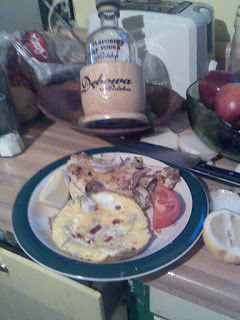
This is a great one for a rainy day at summer camp when it's time to enjoy your catch:
1. Smear the bottom of a large well seasoned iron skillet with 2tb cooking oil stirring mixed with black pepper and garlic. Heat sear to pan.
2. Prepare fish batter to dip fillet in (really any fresh fish will do). I used fresh Lake Superior trout.
1 egg
mix in water white flour until clumpy and creamy
add Lemon Pepper to flour
run fillet through it
3. With skillet on MED HIGH HEAT, drop in fillet and chop up as much onion as you want over it but smothering is the word here, trust me. After you hear that sizzling sound and smell the juices boiling, reduce heat to medium or less (depending on stove). Cover and let cook.
4. Get a small round well seasoned iron skillet. Grease bottom. i use spray butter, so what?
5. Set heat to less than medium. drop 3-4 eggs in it to fill out like a quiche pie. sprinkle hot sauce into it if desired. let cook very slowly on LOW MEDIUM heat.
6. Fish should cook 15- 20 minutes depending on size.
7. Flip over after adding some water to pan and press down with spaced tong spatula to release fish juices on MED HIGHT heat. Let cook uncovered until fleshy side is done.
8. Spatula egg pie out of skillet when no fluid left on surface and remove from pan.
9. Serve both dishes with lemon slices and tomato slices and Polish vodka!
Voila!!!!
Published on June 26, 2015 19:28
June 24, 2015
ICPPC and The European Farmers Food Revolution Against Big Business

A volunteer working the Polish countryside
The International Coalition to Protect the Polish Countryside, or ICPPC, seems literally to be making the last stand in the Western world against the international banking community's wish (and others) to fight corporate ownership of Poland's soil. They want to eliminate organic, localized farming and replace it with toxic control which includes using Genetically Modified Organisms. No. It doesn't sound good, does it? Please. They need your help. Donate what you can HERE OR purchase Sir Julian Rose's excellent book, In Defence of Life . Thank you for taking action to protect your children and theirs.
Published on June 24, 2015 10:09
June 23, 2015
Settlers Co-op and Jeff Helsius

On the morning of 6/23/15, three courteous and professional propane service men from Settlers Co-op in Bruce Crossing, Michigan replaced my broken 100 gallon propane tank quickly, kindly and superbly--all for FREE. I especially thank General Manager, Jeff Helsius, for keeping my home heated all the way through winter as he quickly recognized that they had sold me a tank with a defective fill amount gauge on it. Jeff and his crew periodically checked my home and made sure that I was getting gas and, more importantly, HEAT. Jeff didn't have to do this. The tank was paid for and he could have just said that it was my problem but he didn't. He promised to replace it with a new one in the summer and he stuck true to his word and his well trained crew carried out his wishes with perfection. Thank you Settlers!!!
Published on June 23, 2015 13:04
Miltiades Varvounis and Jan Sobieski: The King Who Saved Europe
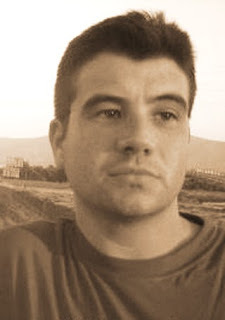
Enjoy this interview with Athens, Greece scholar and author, Miltiades Varvounis about his historical masterpiece, Jan Sobieski: The King Who Saved Europe. Also, check out my review of the book on Goodreads.
1. Why did you write Jan Sobieski: The King Who Saved Europe? Jan Sobieski was one of the most fascinating men ever to sit on a throne or command an army. He became famous at the age of 38 through his exceptional military skills, and he was acknowledged as the greatest soldier of his time throughout the rest of his turbulent life. His patriotism, his energy, his faith, his military reputation, his taste for art, and his talents – all these were legendary in his lifetime. However, after WWII, there was no published work in English about the king who saved Europe from the Ottomans at the Battle of Vienna (1683); a battle which was the inspiration for J.R.R. Tolkien’s cavalry charge of the Rohirrim that lifted the Siege of Minas Tirith in “Lord of the Rings” trilogy. Although a great number of books in English have been published on Polish history since the 1990s, the ‘Lion of Lechistan’ ,as Sobieski was called by the Ottomans, has remained neglected by the historians. If Jan Sobieski is the most famous Polish military figure, we also witness a similar situation with notable generals or national heroes such as Alexander the Great, Duke of Wellington, Frederick the Great etc., who have been ignored by modern historiography for decades.
2. What kind of audience did you have in mind when you wrote this book? I aim for a wide readership; I prefer to write articles or books that will be attractive to a more global, international public, so this makes me a popular historian. Besides, I am not so interested in writing a dull, analytic academic monograph that nobody outside the profession would read. The truth is that if you want to tell a fascinating story, you cannot do that by writing an academic history book. And that’s what history is, a story. It is no wonder why sales of academic history books sometimes number only in hundreds; if it weren’t for university and library purchases, their sales might be measured in dozens. Therefore, I just belong to this minority of historians that prefer addressing a wider audience to addressing limited academic audience, promoting history in a vivid detail that will move people who are thirsty for knowledge. Moreover, I also want to change many ordinary people’s perception of history, persuading them that history is definitely not boring, for history should be for everybody as history is simply humanity.
3. Many of your descriptions surpass those of the 'average' historical non-fiction author. To what do you attribute this skill? Various popular historians or novelists were my inspiration regarding my way of writing, while my mentor, Dr. Nicolaos Nicoloudis,has given me some good pieces of advice and encouragement during these recent years. Thanks to them, I made the decision to present history that reads like a “novel" and inspire the reader to take a front seat in the middle of the historical events, offering him the unique opportunity to travel back to the past and witness the life of those exciting times explained in my books. Writing a captivating, accurate, thrilling biography with a compelling flow of narrative means that your characters should be as dynamic and fascinating as the ones you would create in fiction. That is why I enjoy focusing on why people in power did whatever they did and how it affected others and the humanity. Finally, what matters to me is to make my books engrossing to read and that a reader won’t end up putting them down halfway through.
4. You write that early on you were greatly influenced by a film, listing Sergio Leone as one of your favorite directors. Do you think your writing about legendary heroes reflects Leone and other directors who took as rolemodels archetypical memes, such as in Kurosawa's, Seven Samurai?
That applies mainly to the movie script I have written with the Greek director and actor Despoina Kourti, and now we both try to promote it to several agents and producers. Our film project is called “The Last Sunset” and it is a gothic horror Western that deals with the hunt of a brutal vampire (actually a demon) in the wild remote parts of a Greek island back in the 17th century. However, it is not just Sergio Leone, but also John Carpenter who has influenced me, while co-writing that script.
5. How political are you in your writing (if at all)? Well, every historian looks at the past from his or her own perspective, uses his or her own methods and writes in his or her own way. Each historian approaches the past with his or her own values, priorities and political perspectives. Therefore, almost all historians are more or less political in their works. Personally, I do not want to be labeled or categorized into a specific school of historiography (romantic, critical, postmodern, revisionist, post revisionist, Neo-Conservative, Marxist and New Left). However, I have been once called “the last of the romantic historians”, an exaggerated title without doubt. But the reason for being called like that is that I am attracted to the old romantic school of patriotic historiography, for I always emphasize in my works the military and cultural achievements of my both homelands. Moreover, I like to focus on the romantic ability of the heroic individual to alter society and determine the fate of an entire nation or humanity.
Despite my intentions to inspire patriotism and speak for Poland and Greece, bringing both nations to full self-consciousness, I am always committed to the objective requirements of fidelity, honesty and attachment to archival evidence. Every historian must present history without distortions.
6. What do you think Jan Sobieski would say about your book if he read it? “I came, I read, I enjoyed.” (A paraphrase of Jan Sobieski’s famous quote after the Battle of Vienna, “I came, I saw, God conquered").
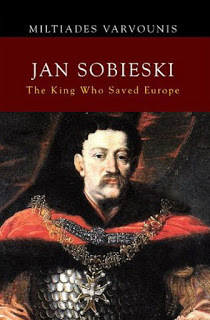
7. Please tell us where we can find more of your works, past and current? “Jan Sobieski” can be found in selected bookstores in the US (especially in Chicago with its large American-Polish community) and, of course, in electronic markets (Amazon, Barnes & Nobles etc). My other books are only in Greek; therefore, they are available only in Greek bookstores. Some historical articles of mine in English are also available on internet. Check out my official website for more details: miltiadesvarvounis.com
8. We noticed that all your books are biographies. Do you consider yourself a biographer? Actually, yes. That is because I got some proposals from Greek publishers to write about some significant historical figures. They knew me for my fresh and lively writing skills concerning biographies from several articles of mine, presented in several historical magazines. However, I have written many general historical articles as well. To be honest I have not paid attention to that detail, and I have not bothered to regard myself as a biographer. Because in the end, I feel that I am just an explorer of the hidden and unknown world of the past and the archives, confronting monsters, deciphering enigmas and journeying on behalf of humanity to the chaotic and exotic underground realm of knowledge.
9. Is there anything else that you would like to add? Well, thank you so much for inviting me; I am grateful for this enjoyable interview and I congratulate you on your well-organized website, which gives several authors the opportunity to present their works and views. Keep these interesting interviews coming. I will end with a famous quote by one of my favorite philosophers, Cicero: “A room without books is like a body without soul.”
Published on June 23, 2015 10:19
June 15, 2015
Conrad Johnson and Clean Kill redux

A concise handbook to mastering the writing and killing arts for only $1.99
PURCHASE HERE
THANK YOU
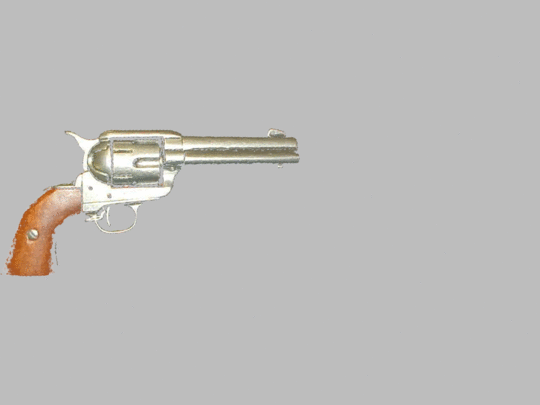
Amazon Reviews:
" Clean Kill is a downright scary, wicked, dark, fascinating book and I could not stop reading. Conrad Johnson is a master of scene setting and characterization, of pacing and plot." --Rebecca Forster
"No one peers as intensely into the dark heart of the human soul as Conrad Johnson. If violence begets violence, then we are all doomed. But we know that already. "Clean Kill" renders the parallel pursuit of the writing and the killing arts masterfully. It is an adventure we wish not to take but cannot refuse. The final monopoly of the reader's consciousness is not so much the result of the gruesome story but the amazing writing, the completely original turns of phrase, the WTF epiphanies. Conrad Johnson probably won't get the recognition he deserves __ hardly a surprise in the Pollyannaish literary environment which the corporatization of creativity has submerged us in. But someday in the distant future, when whatever pathetic creatures crawl out of the rubble and find his writings mixed in with unreadable disk drives and CD-Rs, his works will take their place beside the paranoid nihilism of Nietzsche, the moribund but deadly exactitude of Camus, and the existential angst and self-loathing of Sartre. Conrad Johnson is perspicacious and prescient. He is the master of the blow-the-MF-away genre, the man who chronicled our lethal addiction to self-destructive violence and the total devaluation of the human organism in a tsunami of narcissism and childish worship of guns."--John D. Rachel
"John starts this novella off with "reviews from readers". At first you are thinking...."how did he get these reviews?" But when you realize that this is a spoof, (and perhaps have endured what writers go through) you start seeing the book in a different light. I wrote the author and said I thought his book was hilarious. Perhaps not everyone sees it as such, from reading the other reviews, but I enjoyed it thoroughly and, humorously speaking, perhaps have a target or two also."--Barbara Billig
"You don't understand. He can't be bargained with. He can't be reasoned with. He doesn't know pity or fear or remorse, and he absolutely will not stop...ever, until you are dead." Kyle Resse: The Terminator
"The premise of this novella is simple enough. It is also something that can easily resonate with anyone who has attempted to have a book published. A struggling writer, beaten down by months and years of rejection, snaps and decides to kill the literary agent who personifies everything that is wrong with the publishing industry. This crisis decision leads this author on a long strange trip into madness and murder.
There is a similarity between the iconic, unstoppable cyborg and the protagonist in Mr. Johnson's book; relentless perseverance. There is a darkly comedic quality to the prose that is engaging, even if it doesn't quite create empathy between the reader and the protagonist. There is also a tragic unsettled character to the ending that might be more disturbing than the story itself. If you are a writer (or ever wanted to be one), this is a cautionary tale of obsession. You have been warned."--Gamal Hennessy
PURCHASE HERE
THANK YOU

Published on June 15, 2015 16:13
Conrad Johnson's Blog
- Conrad Johnson's profile
- 47 followers
Conrad Johnson isn't a Goodreads Author
(yet),
but they
do have a blog,
so here are some recent posts imported from
their feed.



